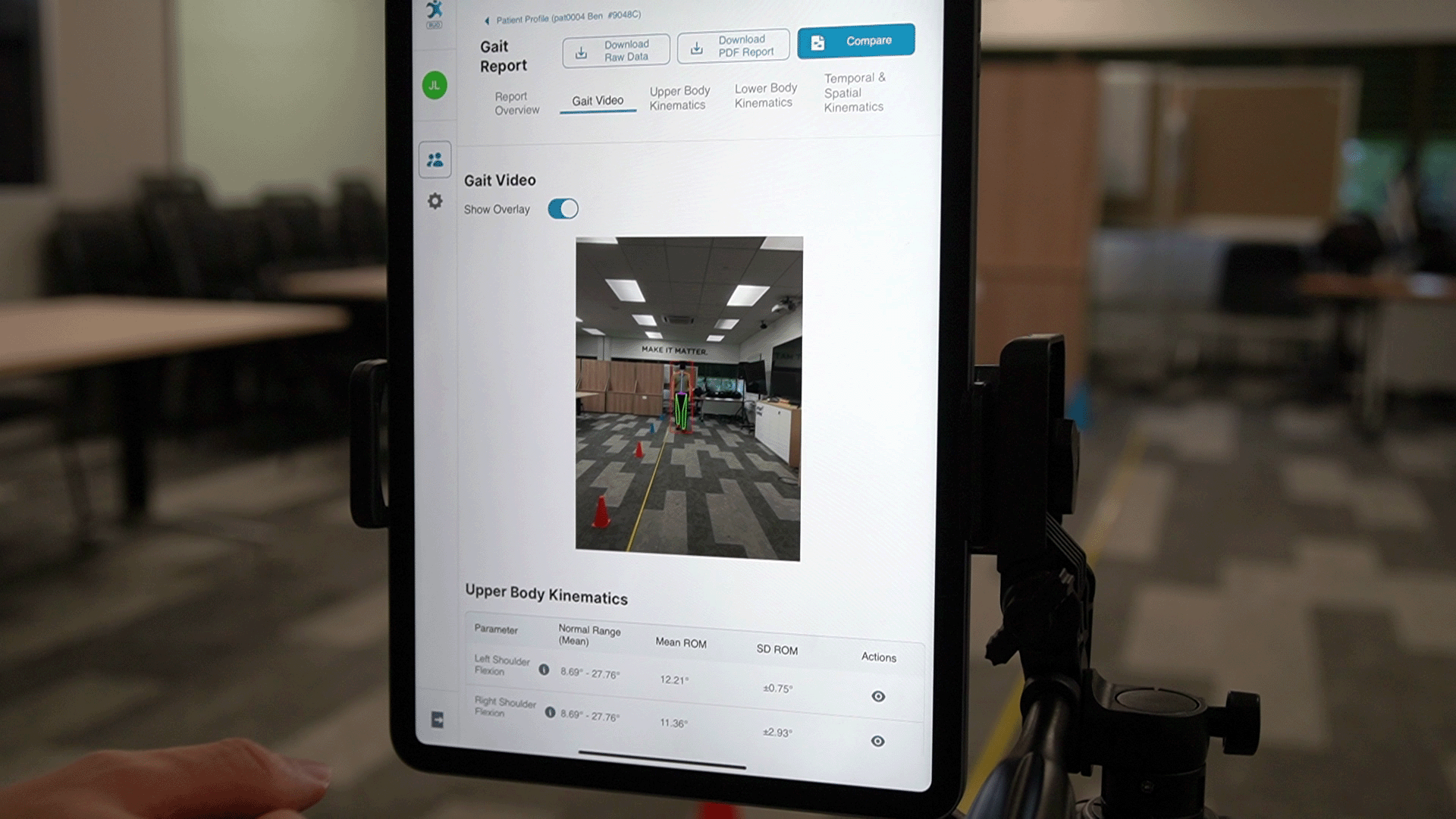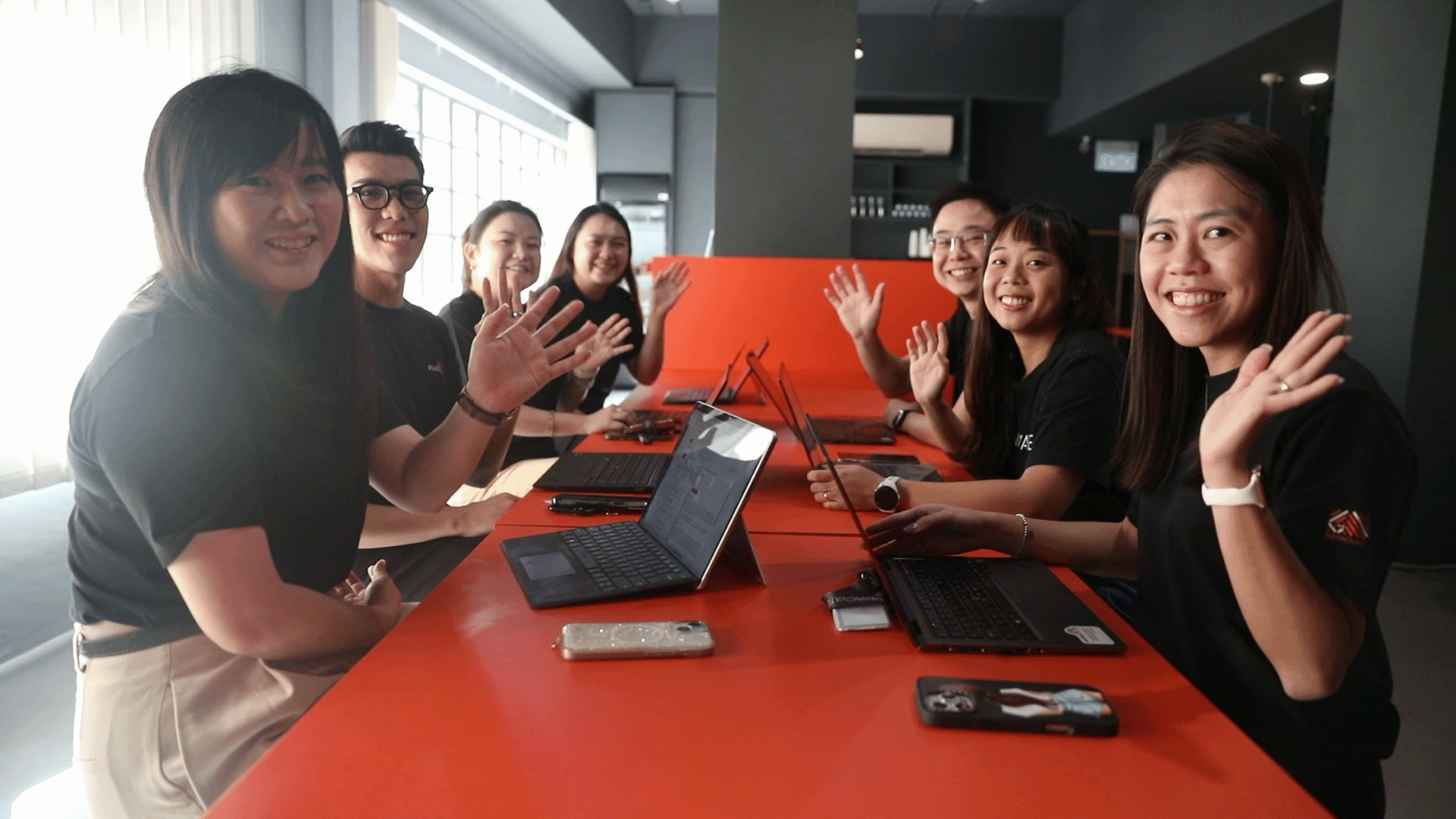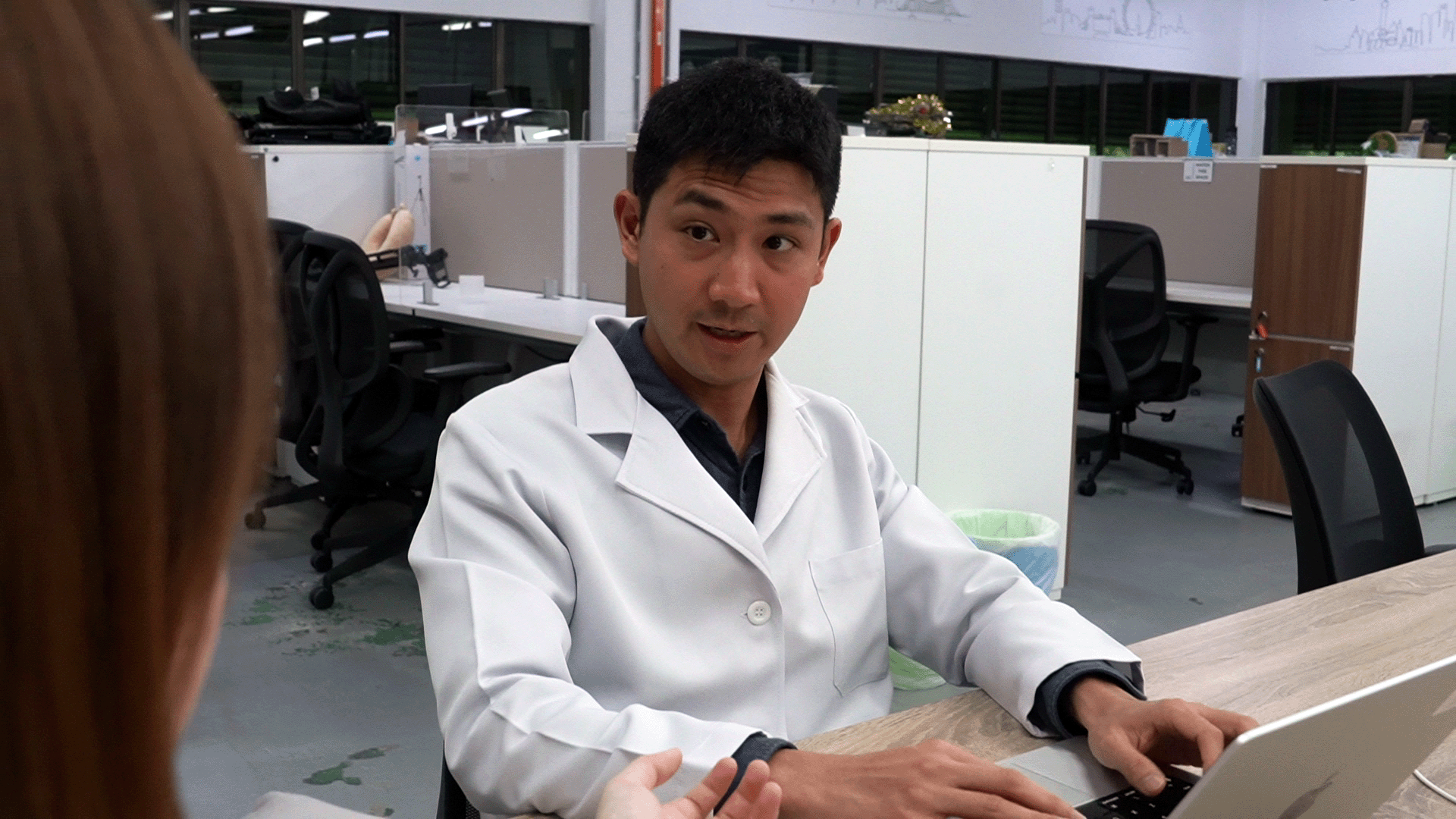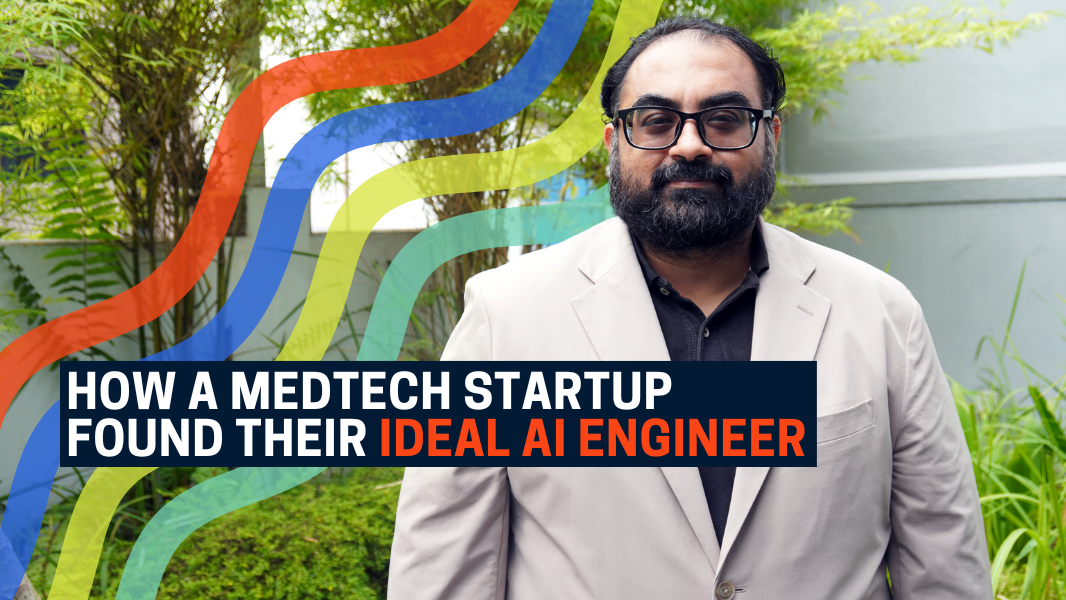Mentor's Perspective: How hiring a TCM Physician has benefitted this MedTech startup
Thu, 06/19/2025 - 12:00
Carecam’s CTO shares how they found their ideal AI engineer – and why looking beyond conventional backgrounds might be the key to solving Deep Tech’s talent crisis.
Deep tech startups face a unique hiring paradox. They need highly specialised technical talent to build pioneering technologies, yet they also require versatile team members who can wear multiple hats – since startups cannot afford to hire specialists for every function.
For Carecam, a company making advanced movement analysis technology accessible to healthcare providers worldwide, this challenge was particularly acute. They needed someone who could bridge the gap between artificial intelligence (AI) technology and real-world healthcare applications.
After months of searching, they found their solution in an unexpected place: a Traditional Chinese Medicine (TCM) doctor, Benjamin Leong, who was ready to pivot into AI engineering.
This successful meeting of minds, bridged by SGInnovate’s Talent Programme, PowerX, offers valuable insights for other deep tech founders who are struggling to find the “perfect” candidate. Here are some key takeaways from our discussion with Carecam’s Chief Technology Officer, Dr Ramanpreet Pahwa.
Q: What does Carecam do, and what hiring challenges have you faced?
Carecam’s mission is to democratise human mobility and movement analysis so anybody in the world can use it anywhere, anytime, for multiple purposes.
Hiring for a Deep Tech startup in Singapore is not the easiest job. We were specifically looking for people who had experience using AI software tools, and also some experience with biomedical data or working in hospitals or clinics. That intersection of AI expertise and healthcare experience represents a very small subset of tech employees in Singapore.
We found candidates who had AI backgrounds working with text data, speech data, or even computer vision, but they had zero experience deploying systems or working with patients and clinicians. Conversely, there were candidates who wanted to move from hospital work to AI, but they had no prior AI experience and were just starting their journey.


Carecam’s gait analysis platform.
Q: What made Benjamin a good fit for Carecam?
Ben came to us at the right time. He had taken AI certifications and understood some of the computer vision technologies we work with, while also bringing his unique experience as a TCM doctor working in a clinic. This unique experience was a very big factor behind why we hired him.
READ Ben's story: From meridian points to machine learning
One thing that I liked about Ben was his honesty. He didn’t try to manoeuvre his way through technical questions when he didn’t know the answers. In fact, he followed up after the interview when he went back and researched the topics we discussed. It was a very encouraging sign that he is willing to learn and adapt to new technologies.
 The Carecam team. Ben and Raman are both sitting on the right.
The Carecam team. Ben and Raman are both sitting on the right.
Q: How did SGInnovate’s Talent Programme, PowerX, help with the hiring process?
About two and a half years ago, one of our startup mentors recommended that we look into SGInnovate. The PowerX team walked us through all their different programmes in detail, visited our office to understand what we were doing, and gave us a preview of potential candidates including Ben.
What made the PowerX programme attractive was its structure and duration. The first year is considered a traineeship, which is very important for both evaluating and training the candidate for different tasks. This year-long period is heavily subsidised, making it a financially prudent and risk-managed decision for a startup like ours.
The candidates we interviewed through PowerX were already good on paper because they had gone through SGInnovate’s filtering process. From submitting our application to interviewing candidates and making our final decision, the entire process took about three to four months.
We submitted job descriptions for specific roles – DevOps, AI engineer, and someone medically inclined like a biomechanics engineer. Finding someone who fulfils all these requirements is like finding a needle in a haystack, but the SGInnovate team managed to identify candidates who met our diverse requirements.

SGInnovate’s PowerX Team.
Q: How has Benjamin’s healthcare background benefitted Carecam?
We realised we were a Medtech company without any medical doctors on our core team. We had advisors with over 20 years of experience, but our employees were all from AI or business backgrounds. Ben gave us the unique advantage of having a practising doctor who could bridge the gap between our AI technology and clinical needs.
He helped us understand the unique perspective that comes from clinicians – the kinds of problems they want to solve versus what we thought we were solving. This ensured we were building solutions for the right clinical problems.

Ben graduated from Nanyang Technological University (NTU) with a double degree in biomedical science and Chinese medicine.
Q: What skillsets make Benjamin effective as an AI engineer?
Ben has been a very important addition to the Carecam family. He joined fresh from AI certification courses and has done a fantastic job in picking up all the new things we have thrown at him – from helping with data annotation and basic model training to now leading projects for our upcoming virtual reality (VR) application. It has been a very positive trajectory over the past two years.
Beyond technical skills, interpersonal skills are important, especially in healthcare. You need to understand Personal Data Protection Act (PDPA) requirements and how to communicate with both patients and clinicians.
Q: What advice would you give to startups struggling to hire?
Everyone offers a unique perspective to a problem, and having diversity and rich backgrounds really helps when approaching challenges from different angles.
If you are rigid about requiring a computer science background for an AI engineer, yes, it is a core requirement, but nowadays anyone who is truly motivated can pick up technical skills. The more important qualities we look for are interpersonal skills and the ability to learn and adapt.
In startups, you are often juggling multiple roles simultaneously and what you are doing can change drastically every six months. Having someone who is really good at just one task is not what we need – we want people with diverse backgrounds who can handle medical practice alongside model training, or regulatory requirements alongside business engagement.
Find out more about SGInnovate’s PowerX programme here.
Trending Posts
- From satellites to startups, Singapore’s space sector is pushing new frontiers
- How leaders should rethink cybersecurity strategy
- How to Future-Proof a Career in Deep Tech? Start here.
- The future of fusion energy: What will it take to bring the power of the stars to earth?
- Keeping satellites safe: How CYSAT Asia 2026 is tackling space cybersecurity






